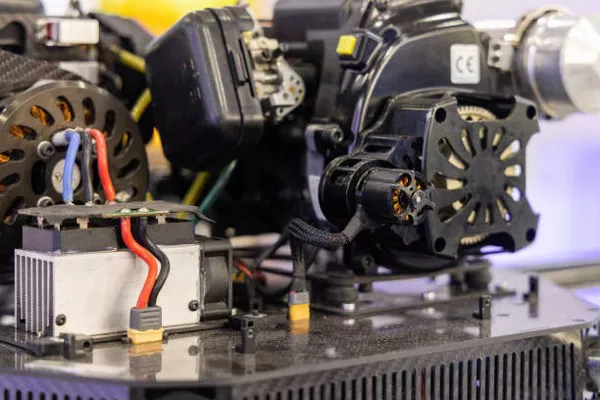In today’s fast-paced world, access to a reliable source of power is indispensable. Whether you are camping in the serene wilderness, enduring a power outage, or working on a construction site, generators play a crucial role in keeping your essential appliances running smoothly. However, the incessant roar of conventional generators can disrupt the tranquility of your surroundings and become a source of annoyance for both you and your neighbors. This is where the quest for the quietest generator becomes paramount.
In this article, we will delve into the world of generators, exploring the technology behind noise reduction, and revealing the top contenders for the title of the quietest generator.
Understanding Generator Noise
Before we embark on our journey to discover the quietest generators, it is essential to comprehend the factors that contribute to generator noise. Generators generate noise primarily due to the following components:
Engine Noise: The internal combustion engines that power generators are the primary culprits when it comes to noise production. The combustion process and mechanical components such as pistons and crankshafts generate significant noise.
Exhaust System: The exhaust system of a generator is responsible for expelling the combustion gases. This system can produce a noticeable amount of noise, especially in older models.
Air Intake: The generator’s air intake system can also contribute to noise, as it draws in air required for combustion.
Vibrations: Vibrations from the engine and other moving parts can propagate through the generator’s frame and create additional noise.
Cooling System: Generators use cooling systems to maintain safe operating temperatures. Fans and pumps in the cooling system can generate noise.
Factors Affecting Generator Noise Levels
Several factors can influence the noise level of a generator, making it crucial to consider these aspects when searching for the quietest generator:
Power Output: Generally, larger generators produce more noise because they have larger engines to generate higher power outputs.
Engine Type: The type of engine used in a generator plays a significant role in noise production. Diesel engines are known for their noise, while inverter generators often employ quieter, fuel-efficient engines.
Enclosure Design: The enclosure or housing of a generator can mitigate noise by containing and dampening sound. High-quality enclosures with sound insulation materials are essential for reducing noise levels.
Exhaust Silencers: Modern generators often incorporate exhaust silencers to reduce noise created during the expulsion of combustion gases.
Inverter Technology: Inverter generators use advanced technology to produce clean and stable power, resulting in reduced engine noise and fuel consumption.
Load Management: Some generators are equipped with load management systems that adjust the engine’s speed based on the load, further reducing noise when running at lower loads.
Quietest Generator Technologies
Now that we understand the factors affecting generator noise levels, let’s explore some of the technologies used to create the quietest generators on the market.
Inverter Technology: Inverter generators are renowned for their quiet operation. They use advanced electronics to produce clean, stable power and automatically adjust the engine’s speed based on the load, resulting in reduced noise levels.
Sound Insulation: High-quality enclosures with sound insulation materials like acoustic foam and sound-absorbing panels can significantly reduce noise emissions. The insulation materials absorb sound waves, preventing them from escaping the generator’s housing.
Exhaust Silencers: Many generators are equipped with exhaust silencers or mufflers that reduce noise produced by the exhaust system. These components effectively dampen the sound of combustion gases exiting the generator.
Vibration Dampening: To minimize vibration-related noise, some generators feature vibration-dampening mounts and shock absorbers that isolate the engine and other moving parts from the generator’s frame.
Airflow Management: Carefully designed airflow systems can reduce noise generated by the intake and cooling systems. Quieter generators often feature baffles and optimized airflow paths to minimize turbulence and sound.
Smart Load Management: Generators with load management systems adjust the engine’s speed based on the power demand, reducing noise when the load is light and ramping up only when needed.
Top Contenders for the Quietest Generator
Now that we’ve covered the technologies that contribute to quieter generator operation, let’s explore some of the top contenders for the title of the quietest generator:
Honda EU2200i: The Honda EU2200i is a popular inverter generator known for its whisper-quiet operation. With a noise level of around 48 to 57 decibels (dB), it’s suitable for camping, tailgating, and backup power needs.
Yamaha EF2000iSv2: Yamaha’s EF2000iSv2 is another inverter generator that boasts quiet operation, producing noise levels ranging from 51 to 61 dB. It’s highly portable and perfect for various applications.
Champion 73536i: The Champion 73536i is an affordable inverter generator with noise levels ranging from 53 to 58 dB. It’s a reliable choice for recreational activities and light household backup power.
Generac GP2200i: The Generac GP2200i is a portable inverter generator known for its quiet operation, generating noise levels ranging from 53 to 61 dB. It’s suitable for camping and powering sensitive electronics.
Westinghouse iGen4500: The Westinghouse iGen4500 is an inverter generator with noise levels between 52 and 59 dB. It offers a higher power output, making it ideal for both recreational and backup power needs.
Conclusion
In a world where peace and quiet are increasingly cherished commodities, the quest for the quietest generator has led to remarkable technological advancements. Inverter technology, sound insulation, exhaust silencers, and smart load management systems have all contributed to generators that produce minimal noise while providing reliable power.
When choosing the quietest generator for your needs, consider factors such as power output, engine type, and the presence of noise-reduction technologies. With the right generator, you can enjoy the benefits of uninterrupted power without disturbing the tranquility of your surroundings. As technology continues to evolve, we can expect even quieter generators to emerge, setting new standards for silent power generation in the future.

